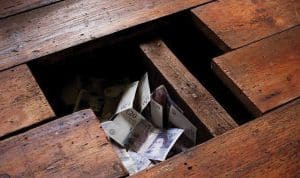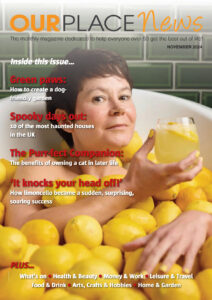Experts have warned that simply keeping cash hidden away at home is not an effective way of saving.

While bank accounts and ISAs provide ways in which people can save more formally, many Britons have turned away from traditional saving methods to manage their money themselves.
Research undertaken by SunLife, over 50s experts, has revealed 13 percent of people still save by stashing hard cash at home.
On average, those over 50s who decide to save money at home have hidden £769 away.
The company acknowledged stereotypes which dictate the elderly are the most likely group to save money in this way.
However, the research has proved otherwise, with the 50-59 age bracket the most likely to keep cash savings at home.
Those in this age group have £1,173 hidden away at home on average.
This is compared with the £547 those in the 60-69 age bracket save, and the £493 those over 70 save.
Simon Stanney, General Insurance director at SunLife said: “While putting coins into a jar can be a good way of stopping yourself from spending loose change, jars and tins were never intended as secure homes for hard earned cash.
“Not only is it very tempting to raid rather than leave for a rainy day, but it isn’t earning any interest and doesn’t stand a chance against inflation.
“Plus, if your home is broken into, a savings jar full of cash is easy pickings, and may not be covered by your home insurance.”
Natural disasters which affect the home such as fire or flood could also mean savings kept out of the bank could be lost forever.
Money saving expert Martin Lewis has also advised money is safer in the banks amid the coronavirus crisis.
He told ITV viewers they should not panic about withdrawing their money during this time.
For those who are worried about saving in banks, fears may be alleviated by knowledge about monetary protection.
UK banks and building societies authorised by the Prudential Regulation Authority are covered by the Financial Services Compensation Scheme (FSCS).
The FSCS protects up to £85,000 worth of savings, or £170,000 for joint accounts.
This means banks are considered to be one of the safest places one can place their money.
The Money Advice Service has advised Britons to investigate the savings account which is right for their personal circumstances.
This can be done through comparison website such as Money Saving Expert or Money Supermarket.
Stuart Coombe, Chartered Financial Planner at financial adviser Old Mill, has said cash savings could be beneficial, but advised savers to think carefully about how they choose to keep their money.
He said: “While it may be tempting to move out of cash, it’s still the cornerstone of financial planning, and remains the safest place to keep your cash in the short term.
“Keeping enough money easily accessible on deposit is a high priority for your financial security and this should be one of the foundations of your personal financial plan.”
However, it is important to check who owns your bank.
This is because banking groups can own multiple banks, meaning even if you split your money between organisations, because of umbrella ownership, it may not be protected by the FSCS.
(Article source: The Express)

